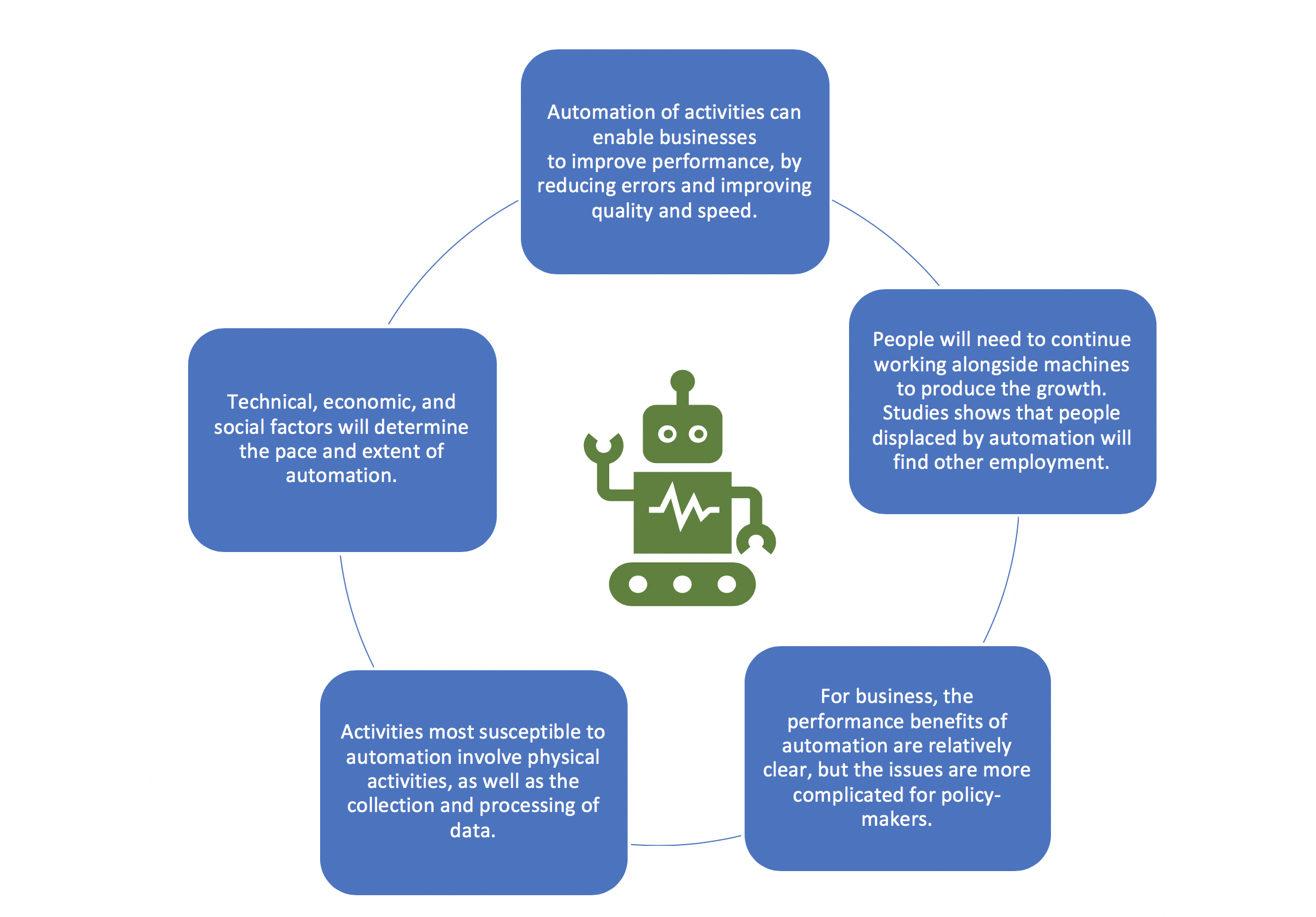In today’s evolving landscape, the intersection of caregiving and workforce dynamics is becoming increasingly critical as millions of employees navigate the complexities of balancing their jobs with caregiving responsibilities. These challenges are particularly evident among working parents, individuals caring for aging relatives, and those with demanding home situations, impacting their work-life balance. Employers who fail to address these issues risk diminishing workforce productivity and face high employee turnover rates, ultimately hindering employee retention. By offering flexible work arrangements, organizations can not only enhance their employees’ well-being but also cultivate a more loyal and engaged workforce. Understanding these dynamics allows companies to create supportive environments that empower workers to thrive both at home and in their careers.
The relationship between caregiving duties and workplace participation represents a growing concern as many individuals strive to maintain their professional commitments while fulfilling family obligations. This dual challenge often leads to heightened stress and diminished job satisfaction, prompting the need for solutions that promote a healthier work-life equilibrium. Companies can leverage strategies such as adaptable scheduling to accommodate their employees’ varying needs, which is crucial in retaining top talent. Recognizing that a significant portion of the workforce faces such circumstances, businesses must rethink their operational practices to enhance workforce effectiveness. Ultimately, fostering a culture that prioritizes the interplay between personal care commitments and professional roles can significantly boost employee morale and overall productivity.
Understanding the Impact of Caregiving Responsibilities on Workforce Productivity
Caregiving responsibilities present a unique challenge for employees, significantly impacting their workforce productivity. The increasing responsibilities associated with caregiving often lead to strained work-life balance, resulting in absenteeism and presenteeism as workers juggle their professional and personal obligations. Various studies indicate that caregivers deal with emotional and physical stress, which can lead to decreased performance at work. By failing to address the needs of these employees, companies unintentionally create a cycle of decreased morale and increased turnover, ultimately affecting the bottom line.
Moreover, organizations that do not enhance their understanding of the caregiving demographics within their workforce may overlook critical insights into employee retention. For instance, when employees do not feel supported in managing their caregiving tasks alongside work, they are significantly more likely to consider leaving their position. This disconnect not only leads to increased costs associated with recruitment and training but also stagnates workforce productivity due to the frequent turnover of skilled employees. Thus, addressing caregiving responsibilities is vital for fostering a productive and stable workforce.
The Role of Flexible Work Arrangements in Enhancing Employee Retention
Flexible work arrangements, including remote work options and adaptable scheduling, play a crucial role in employee retention, especially for caregivers. When employers offer flexibility, they not only accommodate the personal obligations of their employees but also show an understanding of the dynamic needs associated with caregiving responsibilities. By allowing employees to adjust their schedules around personal commitments, such as taking care of children or elderly relatives, organizations can improve job satisfaction, leading to lower turnover rates.
Furthermore, implementing flexible work policies can have a profound impact on employee loyalty. When employees perceive that their employer values their work-life balance, they are more likely to remain engaged and committed to the organization. This loyalty is especially pertinent among high-performing individuals, who, as studies indicate, are often at greater risk of leaving due to caregiving conflicts. By fostering a supportive work environment that prioritizes employee needs, organizations not only retain top talent but also boost workforce morale and productivity.
Strategies for Employers to Support Caregivers
To support employees with caregiving responsibilities, employers must adopt comprehensive strategies that address the unique challenges faced by this segment of the workforce. One effective approach involves revisiting hiring criteria to be more inclusive of candidates with gaps in their work history due to caregiving. By broadening recruitment strategies, employers tap into a diverse talent pool that can positively impact organizational performance and drive innovation.
Additionally, fostering open lines of communication between management and employees regarding caregiving challenges can lead to better workforce management. Regular check-ins and encouraging discussions about caregiving without fear of negative repercussions create a culture of trust. Employers can also benefit from providing resources such as support groups or counseling services aimed at helping employees manage their caregiving responsibilities, which can significantly improve job satisfaction and retention.
The Economic Costs of Neglecting Caregiving Responsibilities
Neglecting the caregiving responsibilities of employees can result in substantial economic costs for organizations. These costs are often underestimated and can include high employee turnover rates, loss of institutional knowledge, and decreased productivity due to absenteeism. The replacement of employees, particularly those in higher-wage positions, incurs direct costs that can exceed their annual salaries. This situation not only impacts the company’s financial health but also disrupts team dynamics and overall organizational efficiency.
Moreover, the failure to address caregiver needs can lead to a domino effect within teams, as colleagues may become disheartened when they see valued team members leave due to lack of support. The ripple effect continues, creating a pervasive culture of dissatisfaction and decreasing morale across the board. Addressing these challenges actively allows companies to harness the full potential of their workforce while minimizing turnover costs and maximizing productivity.
Enhancing Work-Life Balance for Caregivers
Work-life balance is essential for fostering a supportive environment for employees, particularly those with caregiving responsibilities. Employers must recognize that employees are not only workers; they are also caregivers with personal lives that require attention and dedication. By promoting work-life balance initiatives such as flexible hours, remote work options, and childcare benefits, companies can significantly improve employee satisfaction and overall well-being.
Moreover, organizations should actively engage employees in conversations about their work-life balance needs. Creating an inclusive culture that prioritizes the well-being of caregivers not only enhances morale but also strengthens retention rates. Employees who feel their personal obligations are understood and accommodated are likely to exhibit greater commitment and engagement, leading to a more productive workforce.
Rethinking Hiring Policies to Attract Hidden Workers
Rethinking hiring policies is critical to attracting hidden workers—individuals who have absences in their work history due to caregiving responsibilities. Many employers utilize rigid applicant tracking systems that inadvertently screen out qualified candidates with non-linear career paths. By broadening hiring criteria and placing more value on diverse experiences, organizations can unlock a valuable resource of skilled workers keen to contribute to the workforce.
Additionally, inclusive hiring practices signal to potential employees that companies value the diverse backgrounds and life experiences of their staff. This openness can foster a more dynamic workplace culture and improve workforce diversity, essential for innovation and problem-solving. In turn, businesses that recognize the potential of hidden workers position themselves as forward-thinking and adaptable, increasing their appeal to a broader talent pool.
The Importance of Caregiver Support Programs
Implementing caregiver support programs is vital for organizations that aspire to foster a caring and empathetic workplace culture. Such programs can include resources like informational workshops, peer support groups, and access to counseling services specifically designed for employees managing caregiving roles. By investing in caregiver support, employers not only show compassion but also acknowledge the multifaceted challenges their employees face.
Furthermore, tailored support programs can help alleviate stress and burnout associated with caregiving. Employees who feel supported are more likely to maintain higher levels of productivity and remain loyal to their employers. Affordable and accessible resources demonstrate that a company prioritizes their employees’ welfare, facilitating stronger mental well-being and enhancing overall workforce morale.
Addressing Employee Concerns Around Career Advancement
It’s crucial for employers to understand how caregiving responsibilities can lead to significant concerns about career advancement among employees. Many workers fear that their caregiving duties will hinder their professional growth or lead to negative perceptions from management. As a result, employees may choose to withdraw from promotional opportunities, creating a ripple effect on productivity and talent development within the organization.
Employers can mitigate these concerns by promoting an inclusive culture that recognizes and values the contributions of all employees, regardless of their caregiving obligations. Mentorship programs that connect caregivers with leadership can empower them to pursue professional development opportunities, fostering a sense of belonging and career growth in the workforce. Creating pathways for advancement irrespective of caregiving duties demonstrates an organization’s commitment to diversity and inclusion, ultimately contributing to employee retention.
The Future of Work: Integrating Caregiving into Workplace Strategies
As workforce dynamics evolve, it is essential for organizations to integrate caregiving considerations into their workplace strategies. This shift requires a paradigm change in how companies approach employee well-being and engagement. Embracing caregiving as a part of the workplace narrative allows employers to develop innovative solutions that meet the needs of diverse employees juggling various responsibilities.
Organizations that actively seek feedback from employees about their caregiving experiences can better tailor their policies to foster an adaptable workplace culture. As the workforce continues to transform, prioritizing caregiving responsibilities will not only set businesses apart but also lead to a sustainable and resilient workforce capable of thriving amid constant change.
Frequently Asked Questions
How do caregiving responsibilities impact workforce productivity?
Caregiving responsibilities can significantly affect workforce productivity, as employees may struggle to balance their work commitments with their caregiving duties. According to recent research, nearly 80% of workers are affected by caregiving issues at some point, leading to absenteeism and presenteeism. When workers miss days due to caregiving obligations or are mentally distracted while at work, overall productivity can suffer. Employers must acknowledge these challenges and consider flexible work arrangements to support their employees in managing their caregiving responsibilities.
What role does work-life balance play in employee retention in caregiving roles?
Work-life balance is crucial for employee retention, particularly among those with caregiving responsibilities. Many workers, especially those in senior positions, report leaving their jobs due to difficulties in balancing work demands and caregiving needs. Companies that offer flexible work arrangements and promote a supportive culture toward caregiving can enhance employee satisfaction and decrease turnover. By prioritizing work-life balance, employers can retain experienced workers and reduce the high costs associated with replacing them.
What are effective strategies for employers to support employees with caregiving responsibilities?
Employers can support employees with caregiving responsibilities by implementing flexible work arrangements, such as remote work options, adjustable schedules, and part-time positions. Additionally, fostering open communication about caregiving challenges within the workplace can help employees feel comfortable discussing their needs. Establishing employee resources, such as caregiver support groups or access to childcare services, can also significantly alleviate the stress that comes with managing both work and caregiving responsibilities.
How can flexible work arrangements improve employee retention among caregivers?
Flexible work arrangements can greatly improve employee retention among caregivers by accommodating their unique scheduling needs. When employees have the option to adapt their work hours or work remotely, they are better equipped to manage caregiving responsibilities without compromising their employment. Employers who recognize and address the specific needs of caregivers through flexibility are more likely to build loyalty and commitment, ultimately reducing turnover rates.
Why is it important for employers to understand the connection between caregiving and workforce productivity?
Understanding the connection between caregiving and workforce productivity is vital for employers because it reveals how caregiving responsibilities can impact employee performance. Many individuals with caregiving roles may experience conflicts that lead to absenteeism or reduced focus at work. Recognizing these issues enables employers to implement targeted interventions that enhance productivity, ultimately benefiting the bottom line. By prioritizing support for caregivers, companies can cultivate a more engaged and productive workforce, mitigating the costs associated with employee turnover.
| Key Point | Details |
|---|---|
| Rigid Work Policies | Inflexible hiring practices and work rules hinder employee productivity and retention. |
| Caregiver Statistics | Approximately 50-60 million caregivers in the U.S. struggle with balancing work and caregiving responsibilities. |
| Impact of Caregiving on Employment | Caregiving commitments lead to absenteeism and presenteeism, hindering workplace performance. |
| Economic Burden of Caregiving | Soaring child care costs and financial burdens affect workers’ decisions to stay or leave jobs. |
| Employer Awareness | Employers often underestimate the impact of caregiving responsibilities on employee turnover. |
| Need for Flexibility | Employers need to reassess hiring criteria and create more flexible work environments to retain talent. |
| Consequences of Poor Support | High turnover costs associated with replacing employees who leave due to caregiving conflicts. |
Summary
Caregiving and workforce are intricately connected, as millions of workers face the challenge of balancing their jobs with caregiving responsibilities. The recent Harvard Business School report highlights how inflexible work policies and insufficient employer support lead to productivity decline and high turnover rates. By understanding the challenges that caregivers encounter, employers can adapt their practices to create a more supportive work environment, ultimately benefiting both employees and organizations.



